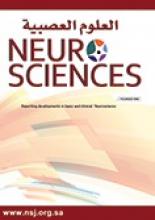Abstract
Febrile seizures are the most common seizure disorder in children younger than 5 years of age. Most febrile seizures are brief, do not require any specific treatment or workup, and have benign prognoses. Generalists and pediatricians are frequently faced with anxious parents and are required to make rational decisions regarding the need to investigate and treat such a child. They subsequently need to provide further prognostic information and counseling to the families. The aim of this article is to provide an updated overview of febrile seizures and review the most recent diagnostic and therapeutic recommendations. Despite the progress in the understanding of this benign syndrome, a wide variation in physician evaluation and management persists. However, there is recent evidence that pediatricians are becoming more selective in admitting and investigating children with febrile seizures. Admitted children frequently had complex seizures, status epilepticus, or were ill looking. Considering the full scope of febrile seizures, the yield of investigations that might alter management remains low and does not justify extensive work-up or prolonged hospitalization.
- Copyright: © Neurosciences
Neurosciences is an Open Access journal and articles published are distributed under the terms of the Creative Commons Attribution-NonCommercial License (CC BY-NC). Readers may copy, distribute, and display the work for non-commercial purposes with the proper citation of the original work.






